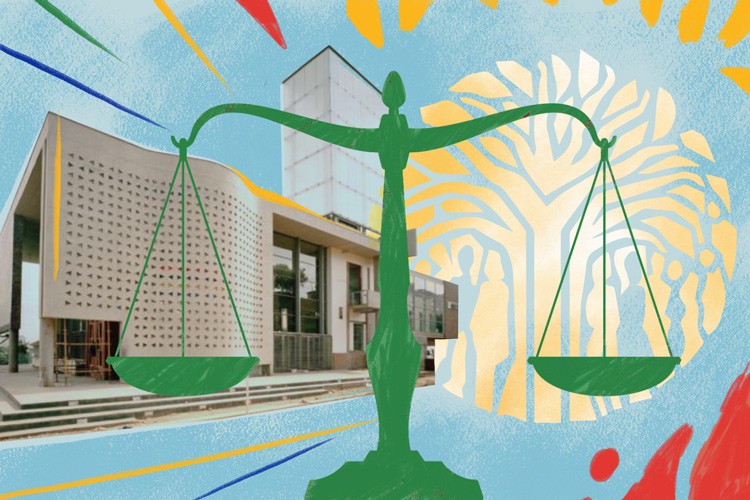
1 November 2022
Graphic: Lisa Nelson
Today, the Supreme Court of Appeal dismissed the appeal by Siyangena Technologies, a corrupt contractor for the Passenger Rail Agency of South Africa (PRASA).
R5.5-billion of public money was on the line. Siyangena was shameless in its corruption. The company circumvented procurement rules, tailored PRASA contracts to their specifications, and infiltrated the rail agency at the highest level.
Siyangena’s defeat in court is a victory for those who resisted corruption at the commuter rail agency.
Then-Public Protector Thuli Madonsela first drew our attention to the Siyangena contract when in her 2015 Derailed report she found that the extension of Siyangena’s contract with PRASA (then worth R1.95-billion) constituted “maladministration and improper conduct.”
On the publication of Derailed, which shone a light on massive corruption at PRASA under the leadership of former Group CEO Lucky Montana and chairperson Sfiso Buthelezi, the newly appointed chair, Popo Molefe, instituted a review of PRASA’s contracts. As he told the Zondo Commission, Molefe’s corruption-busting crusade faced constant opposition from then-President Jacob Zuma’s Ministers of Transport Dipuo Peters and Joe Maswanganyi.
The corruption and mismanagement was monumental, but a few people took up the challenge.
Martha Ngoye, PRASA’s head of legal affairs, set in motion the original application to the Pretoria High Court to have the contract set aside. Ngoye and her former colleague Fani Dingiswayo worked tirelessly to cut out the rot at PRASA, despite being made pariahs by successive boards and executive teams. Their work overturning Siyangena, the notorious Swifambo “tall trains” contract, the Siyaya payments, and many others, deserves national recognition.
Ngoye has since been suspended and is being sued by the current board of PRASA.
Without the work of Werksmans Attorneys, appointed by Molefe to investigate and litigate against the corruption, this contract would not have been set aside. With the setting aside of the Siyangena and Swifambo contracts alone, South Africa has been saved billions of rands. For years, members of Parliament, including current PRASA chair Leonard Ramatlakane, were more concerned about the fees paid to Werksmans for their anti-corruption work, than the corruption itself. Today’s victory is the dividend.
Commuter activist group #UniteBehind has been keeping attention on the issue of corruption at PRASA, intervening in the public interest to ensure that no leniency is offered to crooks who have helped ruin passenger rail transport. Their legal and advocacy work is an example to civil society on the importance of relentless vigilance.